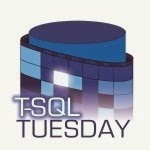It’s T-SQL Tuesday again! In fact, it’s the first of the year and our intrepid host is Reitse Eskens (blog|twitter). Inspired by Buck Woody (blog|twitter) he’d like to hear about failed projects and what we’ve learned from them.
Very near the very beginning of my career I screwed up. One of our biggest clients was Novell (if you’re old enough you’ll know who they are) and I was the lead for any of the technical work related to them. This meant I dealt with the customer directly, at least on occasion. Our contact, let’s call her Amy, had a pet project that she was really proud of, and it was a big deal for the work we were doing for them. We’d created several versions of the code over time and we were having a big meeting one day to discuss Amy’s current specification document. The meeting included not only Amy and I but several of my team members, members of senior management, and a few of Amy’s team.
A couple of important points here. I was in my early 20s and not very good at understanding people. Also, I have a temper, and for whatever reason, Amy had seriously annoyed me recently. To be quite honest I don’t remember why, if I even knew at the time.
So into the meeting I went. During the meeting, I mentioned every flaw I could find in the document. Logical, grammatical, even the odd spelling mistake. In my mind, I’d been calm, cool, and collected. I wasn’t. I thought everything had gone smoothly. It hadn’t. As we walked out of the meeting one of my friends pulled me aside and asked if I was ok. He commented that I’d been really angry during the meeting. I was shocked. I really hadn’t noticed. I mean I kind of did when I looked back on it, but even then, I thought I’d been ok.
The next day I got to have a rather unpleasant meeting with upper management. Amy had been rightfully very upset and asked that I be fired. I probably should have been but I’d been with the company for a few years, and I’d never had a problem before. So they gave me a second chance.
I realized then that I needed to get better at my soft skills. Ever since then, that’s been the skill I focus the most on. I still don’t really understand how other people work, but I try. In every conversation, professional and otherwise, a little piece of my mind goes back to that event. That failure has probably influenced my career more than any other single event.


